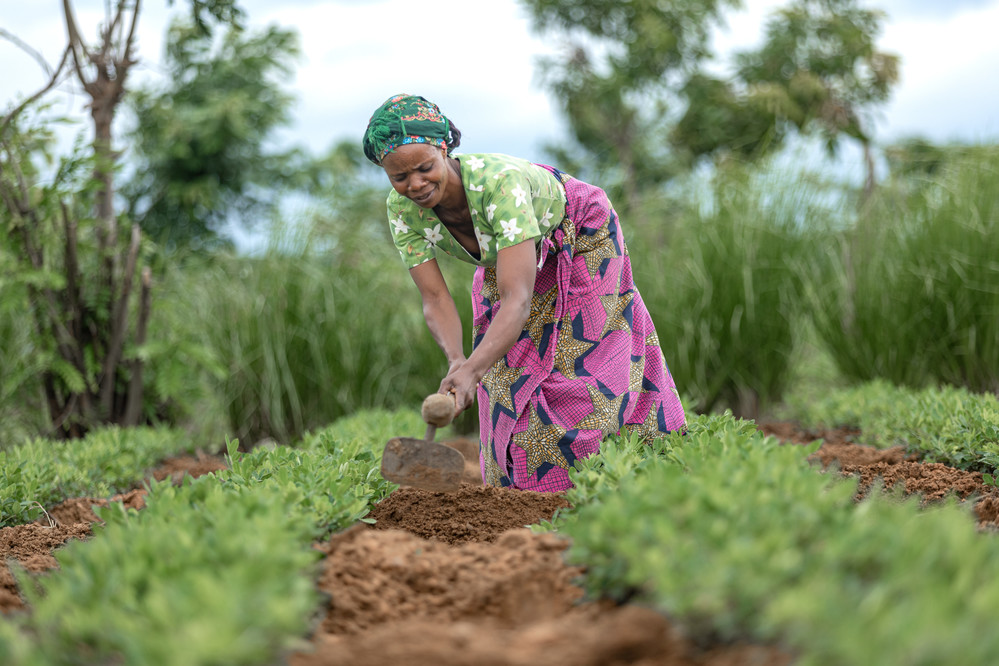Perspectives is a series that highlights emerging issues in the area of agri-SME and smallholder finance from the perspective of practitioners and thought leaders within and outside the SAFIN network. In this interview, Federico Bilder, Co-founder of A2F Solutions Ltd, shares insights on how digital supply chain financing solutions can open up new channels of access to finance for small farmers and agri-SMEs.

©IFAD/Joanne Levitan
Please tell us about A2F Solutions and Centrifuge and your roles there.
A2F Solutions Ltd was established to promote access to finance for micro, small and medium enterprises in developing and frontier markets. We develop schemes for supply chain financing, including in the agri-food sector.
Centrifuge is the provider of an open protocol for the supply chain financing using permission-less blockchain technology. This technology allows its users to share financial documents, such as invoices and purchase orders, and other assets with each other using non-fungible tokens. Centrifuge´s founders have vast experience in supply chain financing.
In view of the synergies between these two firms, we have joined forces to develop innovative products and schemes. At A2F Solutions, I focus on product development and on coordinating the work with Centrifuge.
Recent trends show increased digitization of agricultural value chain operations and growth in the number of fintechs in the agri-food sector. In your view, which digital technologies and business models show the greatest promise in improving access to finance for agri-SMEs and smallholder farmers?
I am a big believer in new technologies, especially blockchain which on one hand increases traceability and accountability in terms of the origin of products so that consumers can better decide what to purchase and donors can better assess impact. On the other hand, these technologies also allow stakeholders, including small farmers, anchors, financial institutions, and even consumers, to transact with each other easily and cost-efficiently. Ideally, the two aspects of traceability and access to finance should be linked. For example, small farmers using sustainable agricultural practices could be rewarded with better conditions to access credit.
What is decentralised finance and how can it contribute to closing the agri-SME financing gap?
Decentralized finance—often called DeFi or open finance—refers to the economic paradigm shift enabled by decentralized technologies, particularly blockchain networks. DeFi brings transparency, cost-efficiency, speed, and accessibility to supply chain financing.
With DeFi, farmers or distributors can make use of financial tools that are usually only reserved for big corporations, such as the securitization of accounts receivable. For example, DeFi can allow farmers or distributors to finance their assets using invoices or purchasing orders while enabling traditional and non-traditional financiers to invest in them. The protocol we developed coordinates the various parties required to structure, administer, and finance collateralized pools of assets categorized by type and risk. We believe that DeFi can be key for blended finance approaches and attract private investors by providing certainty of trade and transparency.
What is the role of digital technologies for supply chain management or finance in the “building back better” agenda after COVID-19?
Our vision is for innovative digital supply chain management and finance solutions like ours to trigger non-traditional channels of access to finance for farmers and agribusinesses, including crowdfunding, pooling of assets and securitization, and thus strengthening their resilience. These solutions can also contribute to improving the impact monitoring systems for SDG-related investments by enhancing transparency and accountability.
What role can a network like SAFIN play in helping realize the full potential of digital technologies in agri-SME finance?
SAFIN can help identifying agricultural supply chains in different markets suitable for innovative financing schemes and can facilitate collaboration among various stakeholders including fintechs, banks, microfinance institutions, supply chain actors and others.
SAFIN can also identify sources of funding for innovative fintechs and support the development of blended finance approaches and instruments to de-risk supply chain financing schemes, making these schemes more attractive for the private sector.
Federico Bilder, Co-founder of A2F Solutions Ltd.

Federico Bilder has worked for more than 17 years in the developing finance sector across more than 25 countries in Africa, Europe, Central Asia, Latin America, and the Middle East. He is the co-founder of A2F Solutions, a consulting company specialized in supply chain financing. He is also the innovative finance expert of the EU funded Latin America Investment Facility. His duties include providing strategic advice on blended finance funding and the use of layered funds as well as financial instruments.

